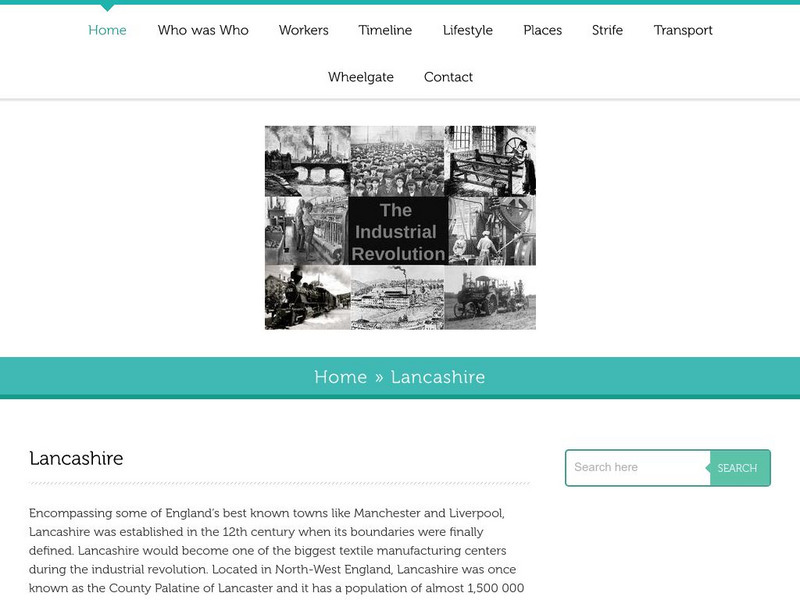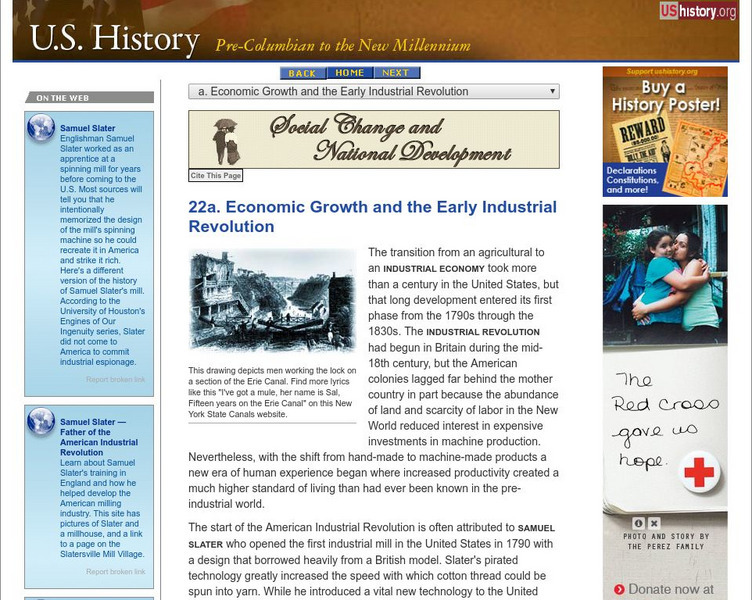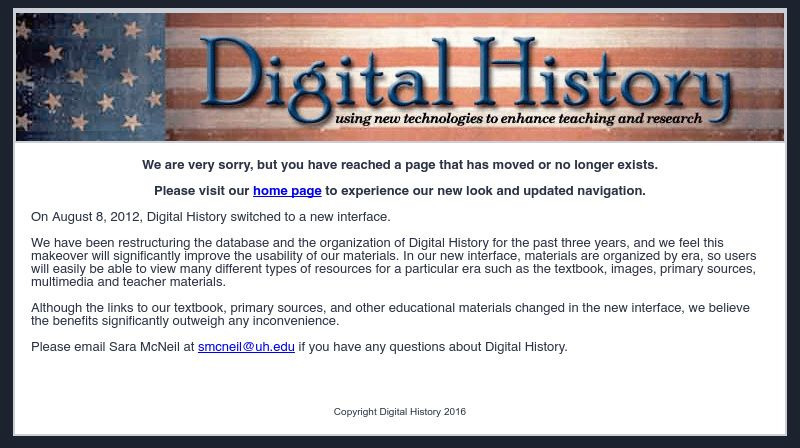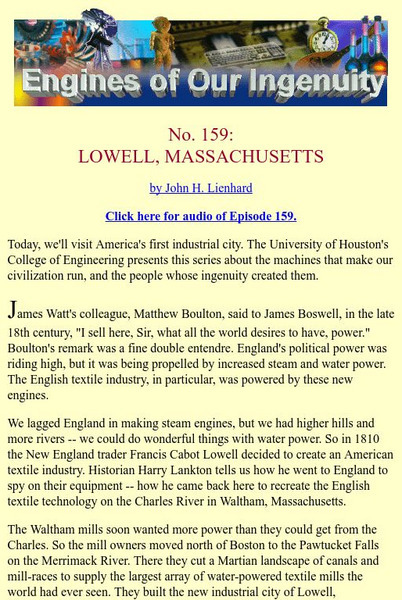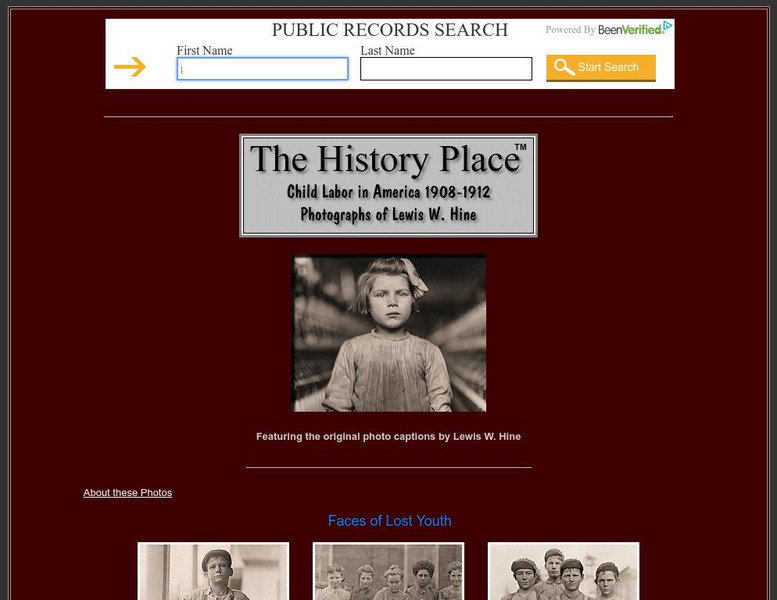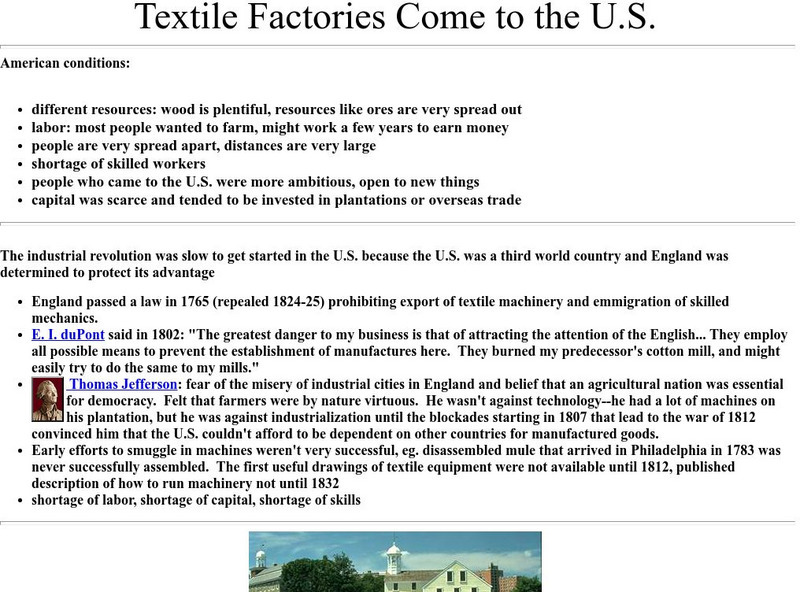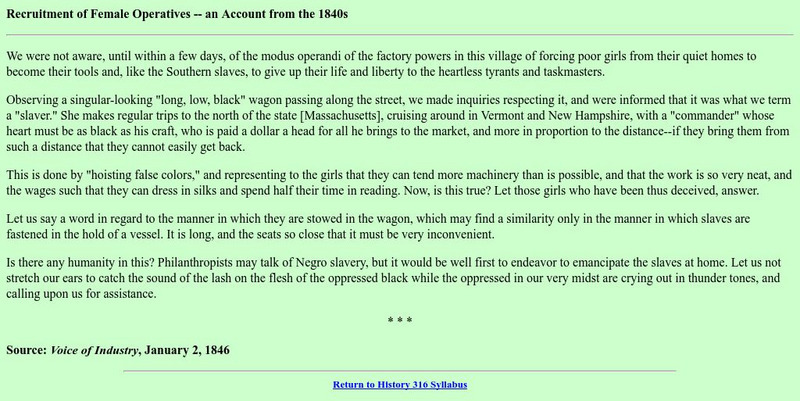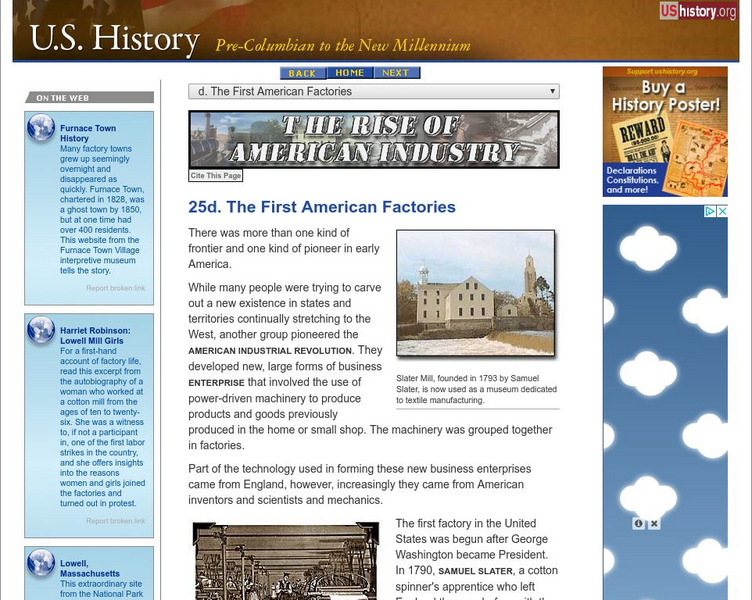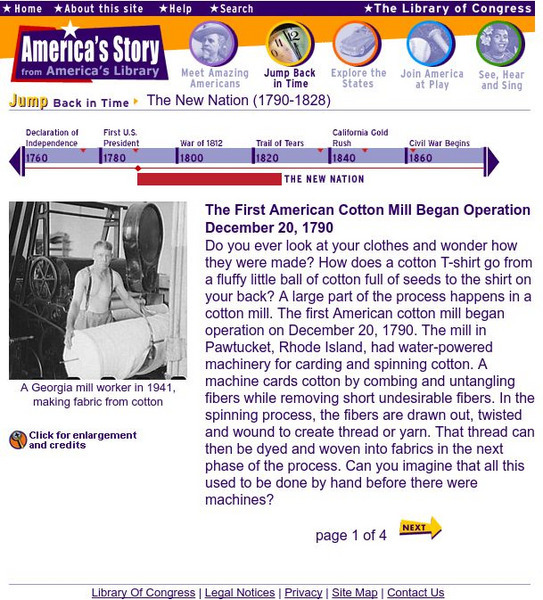Curated OER
New England Jeopardy
Jeopardy style games are fun ways to help students review for tests or solidify concepts recently covered in class. This Jeopardy game focuses on the industrial economy of New England. Students will need to know general information on...
Curated OER
Pre-fieldtrip Preparation: Museum Windham Textile & History
Eleventh graders prepare for a trip to the Windham Textile and History Museum. In this industrialization lesson plan, 11th graders discover what it was like to work in the textile mills and then write their own oral history accounts of...
Other
James Hargreaves
The life and work of James Hargreaves, the inventor of the spinning jenny that revolutionized the English textile industry and brought on the Industrial Revolution.
Other
Mass Moments: January 12, 1912: Bread and Roses Strike Begins
The Bread and Roses Strike was given a very slight chance of accomplishing anything for women who worked in poor conditions in the textile mills in Lawrence, Massachusetts. See how wrong the mill owners and even the leaders of the...
OpenStax
Open Stax: Transformation in North 1800 50: Early Industrialization Northeast
Examines the transformation of work from artisan-centered to a mechanized workforce. Looks at the emergence of industrialization and the impact it had on production and on the worker experience, the development of the consumer society,...
Annenberg Foundation
Annenberg Learner: Primary Sources: The Lowell System
An hour-long professional development video on teaching how the Lowell System was a departure from traditional labor practices. Features experienced classroom teachers. Materials and a complete lesson plan are also provided.
Independence Hall Association
U.s. History: Economic Growth and the Early Industrial Revolution
A very thorough look at the industrial growth in the North because of the advent of the Industrial Revolution in America. See what industries grew, how factories became more productive, and find out how the states cultivated economic...
Science Museum, London
Science Museum: Making the Modern World: Textiles: Domestic v Factory Production
Twelve-part learning module uses text-based overviews and rich media cut-away scenes to explain the role of the textile industry in driving the Industrial Revolution forward in Britain.
Digital History
Digital History: Roots of American Economic Growth: Transformation of the Rural
Read about the changes in the American economy between 1820 and 1860 that resulted in a market economy encouraged by technological advances in manufacturing.
Internet History Sourcebooks Project
Fordham University: Modern History Sourcebook: "Lowell Mill Girls" by Harriet Robinson
Archived news article. A personal account of young female cotton mill workers in Massachusetts during the mid-1800's.
Digital History
Digital History: The Roots of American Economic Growth
Francis Cabot Lowell introduced mechanized textile manufacturing to the Northeast. Read about how he built his machinery and whom the textile mills employed.
Digital History
Digital History: The Introduction of the Factory System
The factory system revolutionized manufacturing and the employment of unskilled workers to man the factories. Read about the young children, women, and, later, immigrants who provided the labor to the textile mills and other...
University of Houston
University of Houston: Engines of Our Ingenuity: No. 159: Lowell, Massachusetts
History of Lowell, Massachusetts, textile mill that underwent tremendous growth in the early 1800s, and led to the creation of America's first industrial city. This is a transcript of an accompanying radio broadcast.
The History Place
The History Place: Child Labor in America: 1908 1912: Investigative Photos of Lewis Hine
Powerfully visual website with haunting images of working conditions faced by child workers in a variety of occupational sites, including mines, textile mills, newspaper stands, and factories. Will make many of today's children empathize...
PBS
Who Made America?: Francis Cabot Lowell:consolidated Manufacturing
A brief biography of Francis Cabot Lowell which describes his role in the industrial revolution in the United States. Read about the factory system, the so-called Lowell girls, and mechanization of cloth manufacture.
Other
Lecture Notes: Textile Factories Come to the u.s.
Clemson University provides a historical overview of the wave of textile factories, including Slater and Lowell, that cropped up in the northeast. Hyperlinks to additional information.
Other
University at Albany: Recruitment of Female Operatives in the 1840's
Tells the story of Lowell Mill factory and the "capturing" of poor white females to "work" in the factories. From "Voice of Industry," January 2, 1846.
Independence Hall Association
U.s. History: The First American Factories
The growth of cities and the American economy in the first half of the 19th century was driven by the growth of factories. Read about the textile industry in New England and how manufacturing spread throughout the north.
Library of Congress
Loc: America's Story: First American Cotton Mill
This 4-page article provides an overview of the first American cotton mill put into operation in Pawtucket, Rhode Island, and the history of textile industry.
Khan Academy
Khan Academy: Us History: 1865 1898: The New South
Could the American South be remade as an industrial economy like the North?
Khan Academy
Khan Academy: Us History: 1865 1898: New South
A quick four question comprehension check over the New South.
Other
Woonsocket Connection: Samuel Slater: Father of American Industrial Revolution
A biography of Samuel Slater, father of the American Industrial Revolution, is on this site. Pictures and links are also available.
Other
Woonsocket Connection: Samuel Slater: Rhode Island's Mill Villages
Pictures and text describing the conditions and what it was like working in the Rhode Island mill villages.
Other
Samuel Slater: Father of the American Industrial Revolution: Child Labor
Facts about the percentage of children in the mills and their pay. Discussion of why child labor was accepted. Links to other sites and to information on Samuel Slater.




